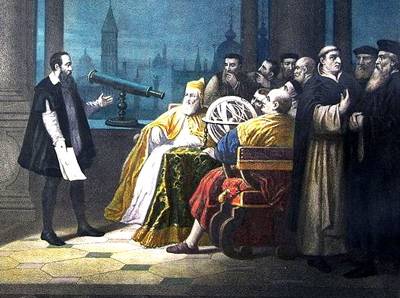On the Origins of New Forms of Life
6.7: Section Conclusion
EUGENE M. MCCARTHY, PHD GENETICS
|
|
(Continued from the previous page)
It seems fair to say the foregoing facts indicate that the burden of proof is now on the proponents of neo-Darwinian theory. Typically, forms of known origin are derived from stabilization processes (see sections 4 and 5). The single potential source of evidence demonstrating the occurrence of the gradual processes described in orthodox theory, the fossil record, fails to provide evidence that new forms of life normally arise in a gradual manner. Far from it! In the fossil record, the typical form has an abrupt origin and persists largely unchanged thereafter. There may be some few cases where the changes observed in a fossil form are consistent with gradualistic scenarios. But cases consistent with stabilization theory are far and away more typical. Neo-Darwinism, then, which claims evolution is mainly a matter of the gradual accumulation of differences between diverging populations over time, is inconsistent with the usual pattern of change documented by paleontological data (punctuated equilibrium).

|
| Galileo shows his telescope |
Someone unfamiliar with the dogmas of evolutionary biology might say facts should outweigh theory. But faith in any accepted theory can cast doubt upon the reliability of conflicting evidence. If a piece of data seems to overturn a widely accepted rule, then that datum is scrutinized and scrutinized again. This kind of prejudice is as old as science itself. With his telescope, Galileo found evidence contradicting the long-accepted view that the earth stood at the center of the universe. Nevertheless, scholars of his time were so steeped in tradition that they either refused to look through his telescope or, when they did, doubted the evidence of their own eyes. They were convinced Galileo was somehow tricking them. Instead they relied on tradition and authority. As one of these men put it: “I have as witnesses most excellent men and noble doctors … and all have admitted the instrument [Galileo’s telescope] to deceive.”1
Some of my colleagues have even told me they are convinced there would be more evidence for gradualistic evolution if only fossils provided more information about soft anatomy. The right kind of evidence just hasn't been preserved, they say. But ideally preserved fossils do provide a great deal of very detailed evidence on soft anatomy (any reader who doubts this should reread Schindewolf's description of the triopsid crustacean Triops cancriformis in the previous section) and that evidence, too, is strongly consistent with the idea that saltational evolution is typical. I, for one, cannot accept the idea that we should assume gradual evolution is widespread when there is so little observational data to support it. Are we to be free to imagine any phenomenon unsupported by observation exists even though we are unable to observe it? Everyone knows that such a perspective is altogether antithetic to normal scientific practice. It paves the way for unicorns, supernatural beings, and any number of other phantasms.
Attempts to reconcile fossil data with gradualistic evolutionary theory have led to implausible scenarios (peripheral isolates, speedy gradualism). However, the data is in fact consistent with the idea that stabilization processes frequently produce new types of organisms. Why does theory ignore the fact that saltation is the normal mode of evolution seen in the fossil record? Hasn't the time come for us to take our paleontologist colleagues' findings fully into account? According to the apostle Paul, "faith is the substance of things hoped for, the evidence of things not seen."2 But the evidence of science, the accepted criterion of the empirical tradition, is the evidence of things that actually are seen. Is gradualism the religion of biology? NEXT PAGE >>
Notes:
1. Boorstin (1983: 316).
2. Epistle of Paul the Apostle to the Hebrews, 11:1.